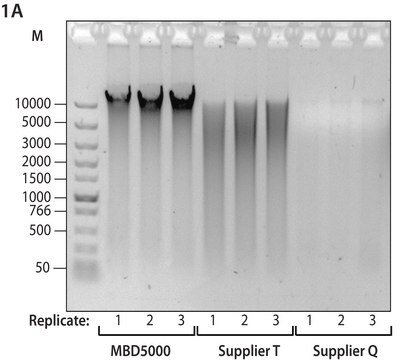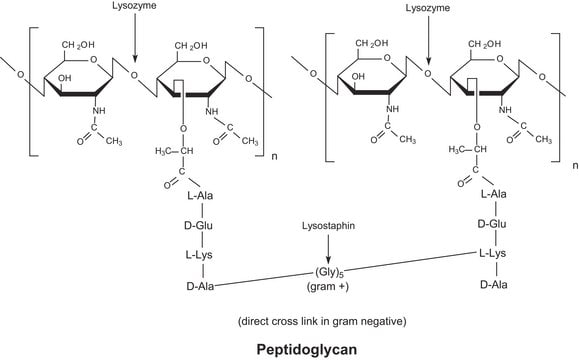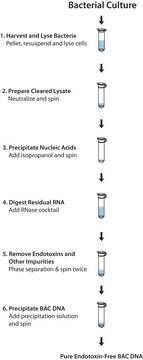NA2100
GenElute™ Bacterial Genomic DNA Kits
sufficient for 10 purifications
Synonyme(s) :
Bacterial Genomic DNA, Gen Elute
About This Item
Produits recommandés
Utilisation
sufficient for 10 purifications
Température de stockage
15-25°C
Catégories apparentées
Description générale
The kit combines the advantages of a silica-based system with a microspin format and eliminates the need for expensive resins, alcohol precipitation, and hazardous organic compounds such as phenol and chloroform.
Application
- restriction endonuclease digestions
- PCR
- Southern blots
- cloning
Caractéristiques et avantages
- Starting material: Up to 1.5 mL of culture
- Expected yield: Up to 20 μg
- Elution volume: 400 μl
- Time required: 70 - 120 min
- A260/A280 ratio: 1.6 - 1.9
- No phenol, chloroform, or ethanol precipitation required
Principe
The expected yield of genomic DNA will vary depending on the cell density of the bacterial culture and the bacterial species and strain used. DNA purified with the GenElute kit has an A260/A280 ratio between 1.6 and 1.9 and can be up to 50 kb in length.
Autres remarques
Informations légales
En option
Produit(s) apparenté(s)
Mention d'avertissement
Danger
Mentions de danger
Conseils de prudence
Classification des risques
Acute Tox. 4 Oral - Eye Irrit. 2 - Flam. Liq. 3 - Met. Corr. 1 - Resp. Sens. 1 - Skin Irrit. 2 - STOT SE 3
Organes cibles
Central nervous system, Respiratory system
Code de la classe de stockage
3 - Flammable liquids
Certificats d'analyse (COA)
Recherchez un Certificats d'analyse (COA) en saisissant le numéro de lot du produit. Les numéros de lot figurent sur l'étiquette du produit après les mots "Lot" ou "Batch".
Déjà en possession de ce produit ?
Retrouvez la documentation relative aux produits que vous avez récemment achetés dans la Bibliothèque de documents.
Les clients ont également consulté
Protocoles
GenElute™ Bacterial Genomic DNA Kit protocol describes a simple and convenient way for the isolation of pure genomic DNA from bacteria.
Notre équipe de scientifiques dispose d'une expérience dans tous les secteurs de la recherche, notamment en sciences de la vie, science des matériaux, synthèse chimique, chromatographie, analyse et dans de nombreux autres domaines..
Contacter notre Service technique














